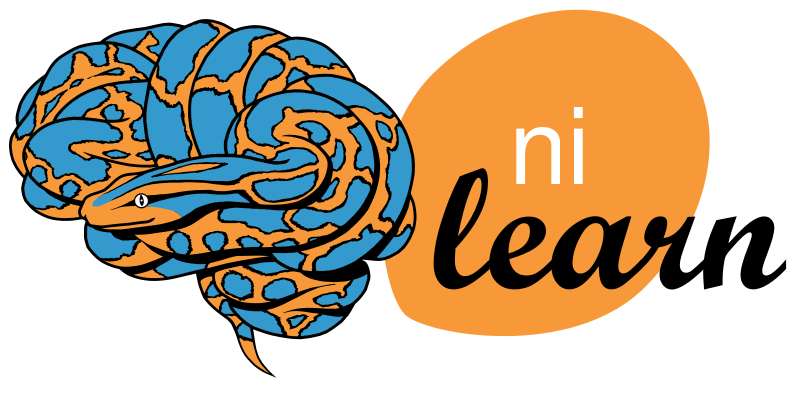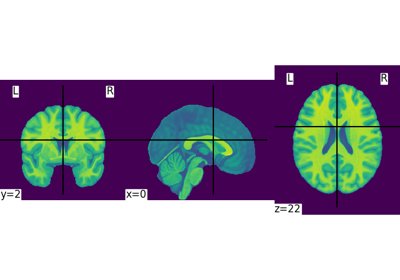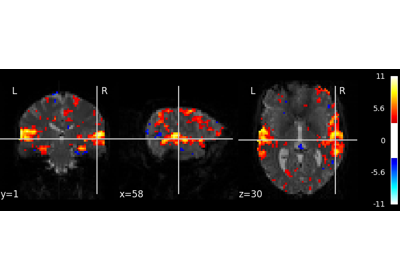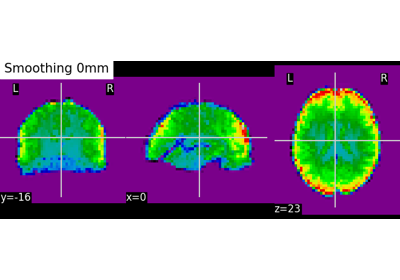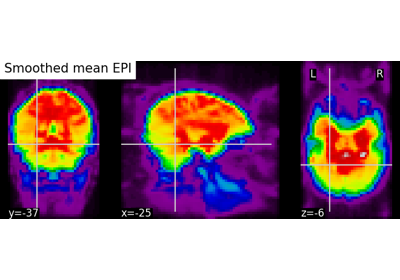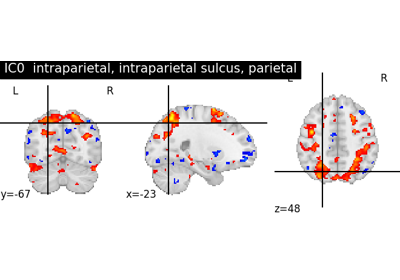Note
This page is a reference documentation. It only explains the function signature, and not how to use it. Please refer to the user guide for the big picture.
8.5.19. nilearn.image.smooth_img¶
- nilearn.image.smooth_img(imgs, fwhm)[source]¶
Smooth images by applying a Gaussian filter.
Apply a Gaussian filter along the three first dimensions of arr. In all cases, non-finite values in input image are replaced by zeros.
- Parameters
- imgsNiimg-like object or iterable of Niimg-like objects
Image(s) to smooth (see http://nilearn.github.io/manipulating_images/input_output.html for a detailed description of the valid input types).
- fwhmscalar,
numpy.ndarray, ‘fast’ or None Smoothing strength, as a Full-Width at Half Maximum (FWHM), in millimeters. If a scalar is given, width is identical on all three directions. A
numpy.ndarraymust have 3 elements, giving the FWHM along each axis. If fwhm=’fast’, a fast smoothing will be performed with a filter [0.2, 1, 0.2] in each direction and a normalisation to preserve the scale. If fwhm is None, no filtering is performed (useful when just removal of non-finite values is needed).In corner case situations, fwhm is simply kept to None when fwhm is specified as fwhm=0.
- Returns
nibabel.nifti1.Nifti1Imageor list ofFiltered input image. If imgs is an iterable, then filtered_img is a list.
